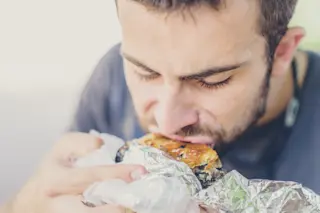Biting your tongue or cheek when chewing can ruin a tasty meal. But thankfully, mouth wounds heal up fast — faster than cuts on skin — and now scientists know why. According to new research published today in Science Translational Medicine, mouths are primed for healing. The find could help researchers transfer the mouth’s curative superpowers to make skin lesions heal faster too.
Paper cuts, scraped knees and similar skin wounds take about a week to heal. But pressure ulcers, traumatic injury and surgery can take longer, sometimes months. For elderly folks who have fragile skin and those living with metabolic diseases such as diabetes, some skin lesions might not heal, leaving people vulnerable to infection and scarring.
“There is an urgent need to develop effective approaches to accelerate the healing of skin wounds,” Maria Morasso, a skin biologist with the National Institute of Arthritis and Musculoskeletal and Skin Diseases ...














